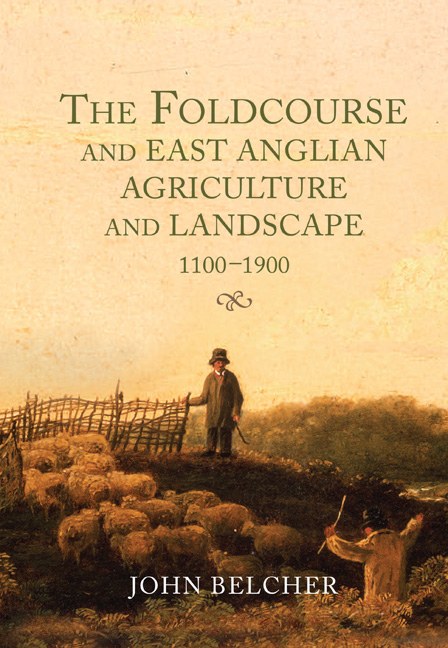Book contents
- Frontmatter
- Contents
- List of Illustrations
- Acknowledgements
- List of Abbreviations
- Introduction
- Chapter 1 The Contexts of the Foldcourse
- Chapter 2 Manors, Rights and Customs of the Foldcourse
- Chapter 3 The Medieval Foldcourse
- Chapter 4 The Late Medieval Evolution of Foldcourse Husbandry
- Chapter 5 The Agricultural Practice of Foldcourse Husbandry
- Chapter 6 The Foldcourse and Improvement
- Conclusions
- Glossary
- Bibliography
- Index
- Garden and Landscape History
Chapter 4 - The Late Medieval Evolution of Foldcourse Husbandry
Published online by Cambridge University Press: 26 March 2021
- Frontmatter
- Contents
- List of Illustrations
- Acknowledgements
- List of Abbreviations
- Introduction
- Chapter 1 The Contexts of the Foldcourse
- Chapter 2 Manors, Rights and Customs of the Foldcourse
- Chapter 3 The Medieval Foldcourse
- Chapter 4 The Late Medieval Evolution of Foldcourse Husbandry
- Chapter 5 The Agricultural Practice of Foldcourse Husbandry
- Chapter 6 The Foldcourse and Improvement
- Conclusions
- Glossary
- Bibliography
- Index
- Garden and Landscape History
Summary
The later Middle Ages, as a consequence of the various calamities that occurred in the first half of the fourteenth century, saw a number of significant changes to the country's society and economy. Here the changes to agricultural regimes in England are considered, starting with an outline of the impact of those calamities nationally and continuing with an examination of the impacts in East Anglia, in particular the shift in seigneurial priorities concerning the foldcourse. Subsequently the social disruptions of the sixteenth century are examined. These were brought about by economic and agrarian pressures and, in East Anglia, the foldcourse has been viewed as one of the causal agents. The final section returns to the spatial distribution of the foldcourse and examines its apparent late development in parts of east Norfolk.
AGRARIAN AND ECONOMIC CHANGE
The fourteenth-century crisis – a sequence of famines and outbreaks of disease in livestock that climaxed with the Black Death in 1348/9, followed by further outbreaks of plague in the 1360s – “was a defining and decisive episode” of the medieval period. The series of crises during the century resulted in a halving of the population of the country, from which there was no substantial recovery until the second quarter of the sixteenth century. Inevitably these calamities had a significant impact on every aspect of life in late medieval Britain. The fall-out from the loss of around half of the workforce drove up the cost of labour, giving those who had survived a stronger hand in their relationship with employers, predominantly the manorial lords or their agents. Furthermore, given a plentiful supply of untenanted land, probably at lower rents across the country, there was a breakdown in the customary constraints surrounding the landlord–tenant relationship that encouraged greater mobility among the workforce, developments that led to a more flexible labour market. Manorial lords were not indifferent to these changes and took various steps to retain their tenants: reducing rents, converting customary land to leasehold tenancies and commuting labour services. By the late fourteenth century there was an increasing gap between labour costs and prices, as the former rose and the latter fell or remained stable.
- Type
- Chapter
- Information
- Publisher: Boydell & BrewerPrint publication year: 2020



